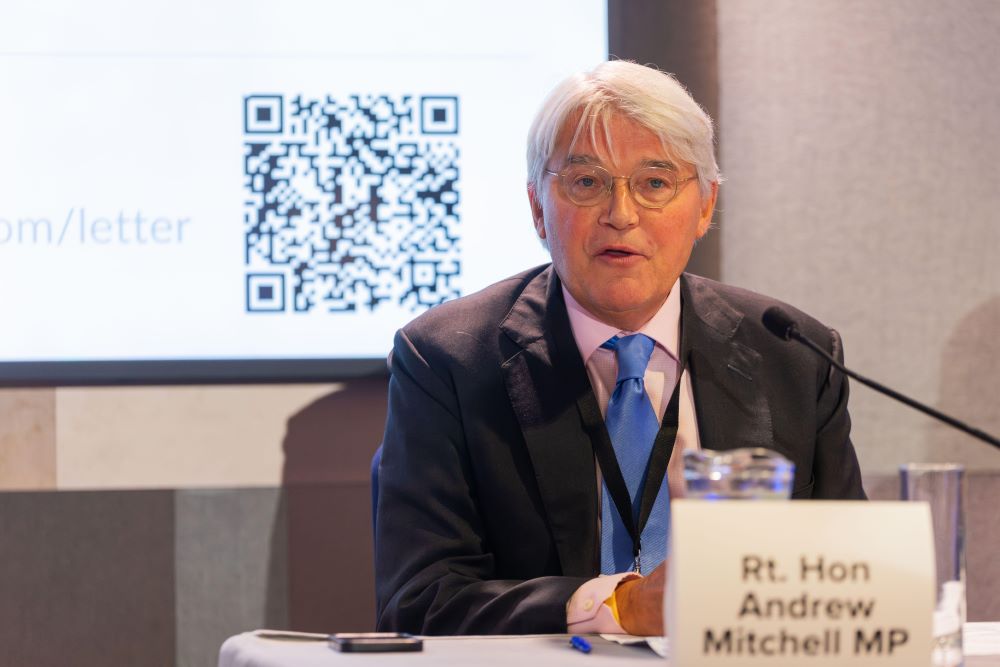UK May Have To Help Fill Void Created By Trump's Foreign Aid Cuts, Say Senior MPs
4 min read
President Donald Trump's decision to restrict US foreign aid risks creating a "void" that the UK may have to fill, the chair of the international development select committee has said.
After being sworn in as president last month, Trump ordered a pause on almost all foreign aid, also called USAID, for 90 days to allow a review of efficiencies and cost-saving.
The US spent $68bn in foreign aid in 2023 and is the world's biggest international aid provider, with recipients including Ukraine, Lebanon, and Ethiopia.
Sarah Champion, Labour MP and chair of the international development select committee, told PoliticsHome there "will almost certainly be an impact" on how the UK operates in the foreign aid space as a result of Trump's decision.
"If funding is not restored or if the US shifts its priorities, it may fall to other major donors, including the UK, to fill the void," said Champion.
"The US is by far the largest ODA (Official Development Assistance) donor.
"The UK’s contribution is not on the same scale but we heard this week that the foreign office is talking to many countries who are keen to contribute to development and humanitarian work.
"The president’s decision puts an urgent label on this work and we wait to hear how that will progress."
Champion said it was important for the UK to "stick to our development priorities" while also engaging with the US in areas of "shared interest".
"The UK needs to continue to work with the US on this but the rules of engagement will need to be clear," said Champion.
Andrew Mitchell, Conservative MP and former development minister, told PoliticsHome that Trump's executive orders would have a significant impact on international development because the US and US work "very closely" together in this area historically.
"If we'd got a particular concern about Ethiopia, they helped us. Out in Lebanon, if they have a particular concern, we try to help them out as well.
"Any curtailment of humanitarian support and development support by America will have a ripple effect on what we are doing here because we are pretty closely aligned."
 Conservative MP Andrew Mitchell (Alamy)
Conservative MP Andrew Mitchell (Alamy)
Mitchell also expressed concern that the executive order on foreign by Trump could result in the international development sector losing talent.
"USAID attracted some very, very capable and able people — not least the last head of it, Samantha Powers, who is an internationally respected, hugely internationally respected humanitarian herself," said Mitchell.
The former Cabinet minister said the same thing happened when the now-defunct department for international development (DFID) was "vaporised" by former Tory prime minister Boris Johnson in 2020.
"We lost an enormous number of good people and, although there's been some improvement, we've never managed to replace them, so we should be in no doubt that there will be a bad effect."
Mitchell said the Labour government shouldn't "lecture" the new Trump administration, but instead hold discussions to establish "what their priority is, what they plan to do, understanding where they're coming from, and making sure you know that where we can we get the very best we possibly can from this".
Ryan Henson, chief executive at the Coalition for Global Prosperity, said Trump's action had created significant uncertainty because "the manner in which USAID is being closed has been so unorthodox".
"It's hard to know the full impact until plays out over the next few days and weeks, but in the first instance there are really tangible effects to be felt immediately," said Henson.
He used the example of Halo, a British NGO that receives funding from USAID and employs US staff around the world. "Those programs will just immediately grind to a halt," he said.
"Halo work on the front line in places like Ukraine, it's going to have a massive impact on that. In tangible terms, we can expect them to do less and to do less almost immediately, without any warning."
Henson said the US also spends significantly more than the UK in the foreign aid space, meaning the work the UK does will now have less of an impact.
"The UK probably spends about £8bn or £9bn a year on development, while USAID spends £40bn," said Henson.
"The UK is very, very much the junior partner and much of the UK's offer to the world is not just money, it's expertise. That's what DFID was known for in the UK, it was world-renowned.
"The collaboration between the US and UK was obviously one of money, which is really important.
"The UK could also bring its expertise. But without the funding there and without the willingness of the US to be in those sorts of spaces, it makes it harder for smaller countries or countries with less resources to operate there too."
